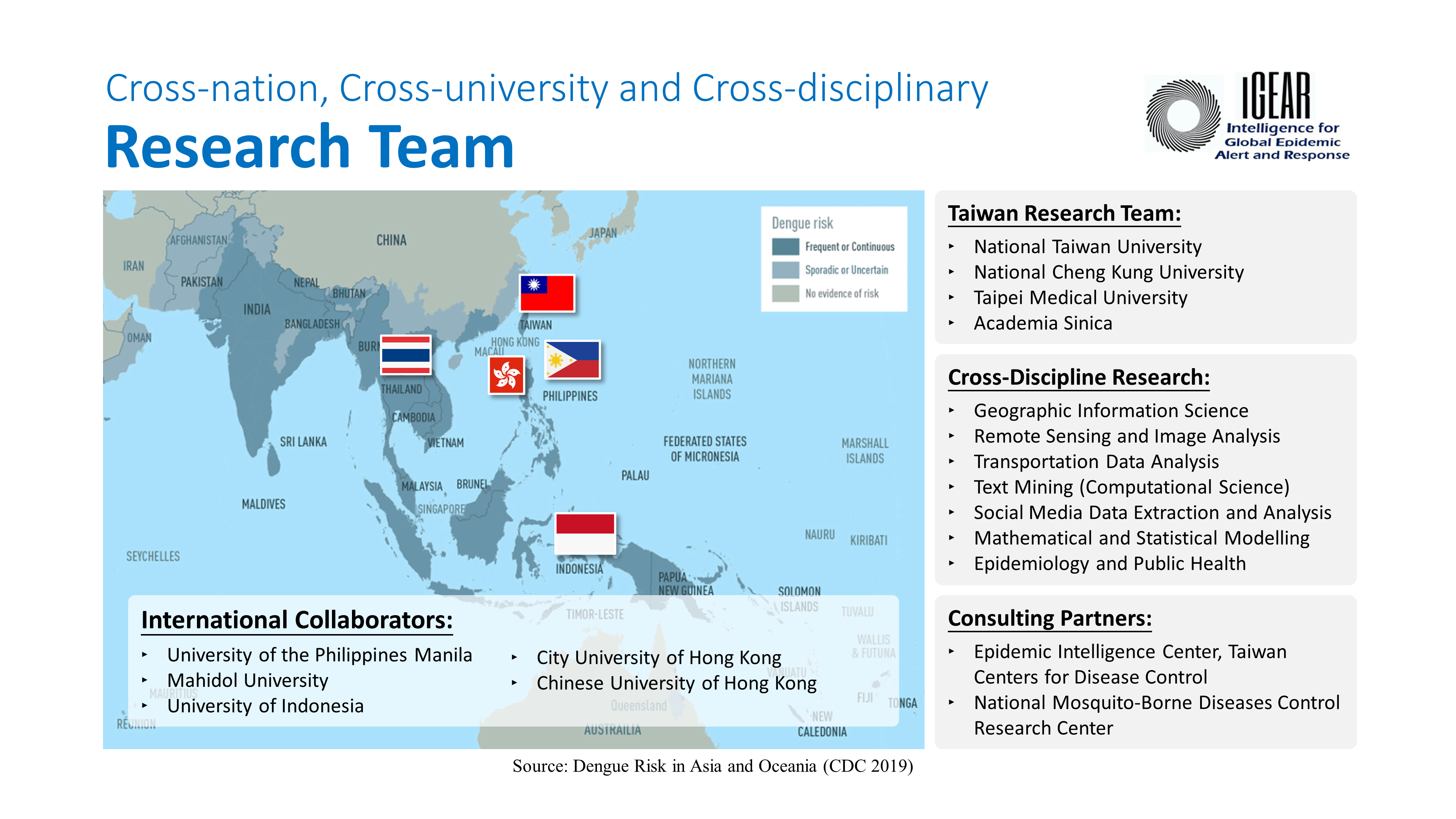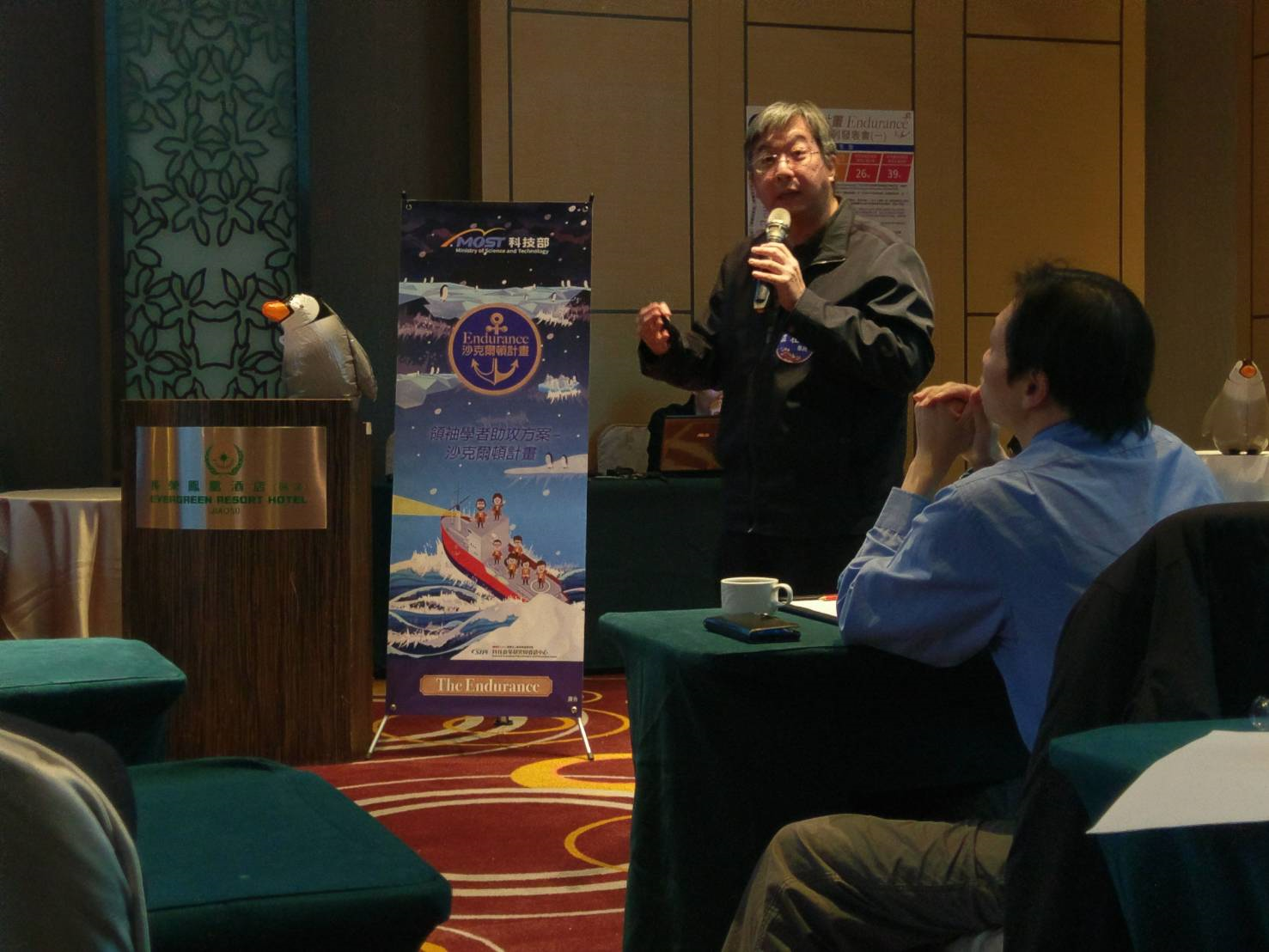
Dr. Wen, the principal investigator of the iGEAR project, was invited to the Shackleton Research Report Meeting held by the Ministry of Science and Technology (MOST) of Taiwan on January 16-17 in Jiao-Shi, Yilan City. As iGEAR is categorized into the Breakthrough Project under the Shackleton Program, this project is expected to provide substantial social impacts and academic contributions. Considering the global expansion of dengue risk, while Taiwan is located on the borderline between tropical and subtropical climate zone and is also one of the major international transport hubs in East Asia, Dr. Wen addressed the niche of Taiwan to be a critical point for monitoring the international spread of vector-borne diseases. To build up a global-scale early warning framework that requires multi-disciplinary techniques and analyses, Dr. Wen also introduced the international collaboration research team of iGEAR in the Shackleton Meeting, as shown in the Figure below, demonstrating a cross-region (Philippines, Thailand, Indonesia, Hong Kong and Taiwan) and cross-disciplinary collaborative framework that includes researchers specializing in public health, epidemiology, biostatistics, geoscience and data sciences.

